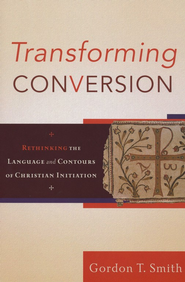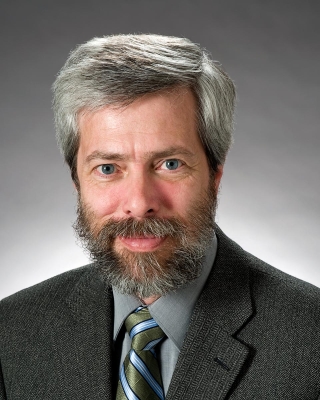Gordon Smith: Transforming Conversion
 Gordon T. Smith, Transforming Conversion: Rethinking the Language and Contours of Christian Initiation (Grand Rapids: Baker Academic, 2010), 208 pages, ISBN 9780801032479.
Gordon T. Smith, Transforming Conversion: Rethinking the Language and Contours of Christian Initiation (Grand Rapids: Baker Academic, 2010), 208 pages, ISBN 9780801032479.
Gordon Smith’s book deals with a central piece of Pentecostal life: conversion. Thoughtfully read, it can deepen understanding and expectations of conversion, which in turn have evangelistic and pastoral implications. On the other hand, it will challenge much that is taken as unquestioned fact regarding conversion. Because of this challenge, some may bypass it altogether. But it would be better to read it and take away as much as presently possible.
The occasion of writing is Smith’s observation that nineteenth century revivalism has set our understanding and language of conversion. It is assumed that conversion is entirely a point action, that the focus of conversion is religious activity, and that the goal of conversion is life in heaven. The problem is that Bible teachers have much more to say on the subject. The concept of conversion has a history that is largely ignored, and that other streams of Christianity have been dealing with this subject for a much longer time. Beyond this, evangelicalism as a whole is undergoing changes. No longer can an Anglo-American perspective be considered the norm. Evangelicalism is a world-wide phenomenon with the majority consisting of Pentecostals and the pentecostalized.

Gordon T. Smith is the president of Ambrose University College and Seminary in Calgary, Alberta, Canada.
The language of conversion is important. Many evangelicals feel alienated from their churches when their genuine experience does not match the patterns of conversion either preached or broadly assumed. Additionally, if language about conversion does not reflect how people actually come to Christ, evangelism methods will be skewed. Though nineteenth century revivalism rightly emphasized the necessity, possibility and current invitation of conversion, it never addressed some major difficulties. Conversion and salvation are made out to be synonymous when in fact, they are not. Salvation becomes something that “happened” when a commitment was made. As true as that is, NT language of salvation “happening” and “will happen” must receive equal weight. Salvation is the work of God; conversion is the human response to God’s initiative. Again, conversion is seen as simple and without struggle. Without implying that there is a minimum threshold of difficulty, conversion counts the cost and leads one to become a “disciple,” one that actually is in the game. Revivalist inspired language leaves us with the notion that one gets converted (saved), and then we must make every effort to get him or her “discipled.” We have gone from a necessary noun to a hopeful verb. Furthermore, the place of children of believers is left ambiguous. Do they need conversion? Does a child’s conversion look like that of an adult? If a child is converted at age five, is there any place for further conversion at, say, sixteen after profound personal development? For Pentecostals especially, how is the NT connection between conversion, baptism and the gift of the Spirit fostered?
Prior to revivalism, there was the evangelicalism represented by Jonathan Edwards and John Wesley. Though of differing theological commitments, both shared an engagement with the beginning and progress of the life of God in the soul. They understood the integration of the affections, the intellect and the will in both conversion and salvation. They understood the place of both process and crisis as the grace of God was encountered. Knowing that mere talk of conversion was cheap, they looked for change in a person’s life. It was a different era. Unlike his predecessors, Edwards found a way to bring the gospel invitation into a person’s grasp. And unlike his successors, Wesley was no revivalist in the later sense of the term. This leads to Smith’s reminder, needing broad proclamation, that how conversion is understood has a long history, and that there are others who have experience with conversion, long preceding our own, from which we might learn.
Category: Ministry, Pneuma Review, Winter 2014


